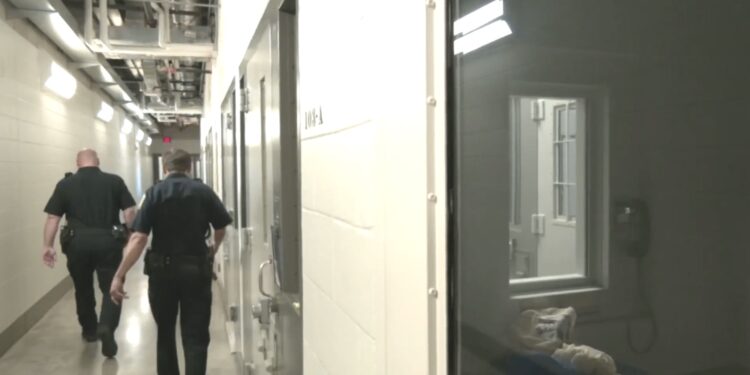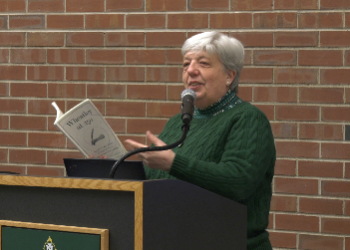LANSING, Mich. (WZMQ) – Corrections Officers in facilities across the Upper Peninsula are speaking up about dealing with a severe staffing crisis. For years, officers have been made to work regular overtime shifts. Forcing them to break labor rules, and causing a build-up of stress that has impacted family lives, work conditions, and overall quality of life.
The long hours, short breaks, last-minute mandatory shifts, and increase in volatile inmate interactions have caused Corrections Officers (COs) to speak up about the severe staffing shortages they’ve been putting up with for years. Some facilities operating with only 66% of the necessary staff.
The president of Michigan’s Corrections Organization said this is an issue that pre-dates COVID. He explained that the stress of staffing shortages has been building for around 7 years, causing officers at all points in their corrections careers to leave the field, only worsening the shortages.
Tim Fleury is a CO who works in the Alger facility in Munising. He explained that it’s become normal for many officers to be told they’re working mandated overtime with little notice. Causing them to miss out on family events, disrupting sleep schedules, and even routine tasks like grocery shopping.
“The forced overtime just is so excessive and it just isn’t going away. Most of us don’t even remember what it’s like to work just a normal 40-hour work week. It’s been so long since we’ve been able to do that,” Fleury said. “Your family is constantly asking you if you’re being forced to work each day that you’re going to work and you don’t even know, or you just assume you are.”
In July, the Marquette, Chippewa, and Baraga correctional facilities logged over 3,000 overtime shifts and 870 closed shifts, which means a position that is required to properly run the facility went unattended over 800 times in just a month.
Routines for prisoners have been interrupted too. Without enough staff to supervise the yard, outdoor exercise and education opportunities meant to destress the environment are cut. This has led to a rise in volatile situations between COs and inmates.
“People are just tired. they’re just overworked, exhausted and they’re just tired and they don’t feel like anyone is listening to them right now.”
Over the summer, The Michigan Corrections Organization started collecting information from facilities that have dealt with the shortage the most. The reports track the number of overtime shifts worked, closed positions across all three shifts, times that workers were called back in with fewer than 32 hours in between shifts, documented incidents between inmates and COs, and vacancy rates; which measure the percentage of unfilled positions within an organization’s workforce relative to the size of the overall workforce.
Baraga (July 1-18)
- 34% vacancy rate
- 544 overtime shifts, 387 were mandatory
- 135 violations of the 32-hour rule
- 350 closed officer positions across all 3 shifts
- 17 documented incidents (From officers having to use tear gas and tasers to control 3 prisoners fighting, to prisoner yard periods being canceled because of officer shortages
Marquette(July 1-28)
- 33% vacancy rate
- 785 overtime shifts, 326 were mandatory
- 88 violations of the 32 hour-rule
- 519 closed officer positions
- 39 incidents (Including officers firing warning shots)
Chippewa – (July 1-31)
- 27% vacancy rate
- 1948 overtime shifts, 1168 were mandatory
- 248 32-hour rule violations
- 31 incidents
Another report has since been released for a facility in the thumb as well.
Staff in U.P. facilities have begun picketing to get the word out about the situations they’ve been dealing with. Calling for action, long term and immediate, to bring relief to offices that have been stretched too thin for too long.
WZMQ will continue to update this story as more information becomes available.










